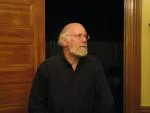
The hierarchy of virtue: mutualism, altruism, and signaling in Martu women’s cooperative hunting
Rebecca Bliege Bird, Stanford University
Monday, March 8, 12:30 pm
Berkman Center, 23 Everett Street, second floor
RSVP required for those attending in person (kglemaud@cyber.harvard.edu)
This event will be webcast live at 12:30 pm ET and archived on our site shortly after.
This talk is part of The Psychology and Economics of Trust and Honesty speaker series, led by Berkman Fellow Judith Donath and hosted by the Berkman Center for Internet & Society’s Law Lab. For more related to Bird's talk, see this page.
From Rebecca:
Cooperative hunting is often assumed to be maintained through returns to scale: by working together, foragers can gain higher returns than they would have by hunting alone. The problem with this hypothesis is that it requires inequality: mutualism sustains cooperation only when cooperators gain higher returns than others. This requires better hunters to pair up only with other good hunters, or to bias sharing in ways that allow better hunters to reap the benefits of their overproduction. At the least, it requires some correlation between work effort and consumption benefit. We test this hypothesis among Martu hunters and find that cooperation only provides increased returns to poorer hunters while disadvantaging better hunters. To salvage the mutualism hypothesis, better hunters should cooperate less often, but they don't. Neither do they bias their partner choice to kin or household members. I test a signaling model of benefit, which proposes that better hunters share a greater proportion of their catch than poorer hunters as a way to signal a commitment to public goods provisioning and egalitarianism through their 'pecuniary disinterest'. The results suggest that while some foragers may benefit through cooperation from returns to scale or risk reduction, cooperation might be a costly signal of commitment to public interest on the part of better hunters. I suggest that demonstrating a commitment to equal consumption (a hierarchy of virtue, not material benefit) generates trust and strengthens a better hunter's social networks, particularly for women, who cooperate more than men.
- About Rebecca
- Bliege Bird, R. and D. Bird (2008) Why women hunt: risk and contemporary foraging in a Western Desert Aboriginal community. Current Anthropology 49(4):655-693.
- Bliege Bird, R. and E.A. Smith (2005) Signaling theory, strategic interaction, and symbolic capital. Current Anthropology 46(2): 221-248.
You might also like
- communityOn Software Bugs and Legal Bugs




